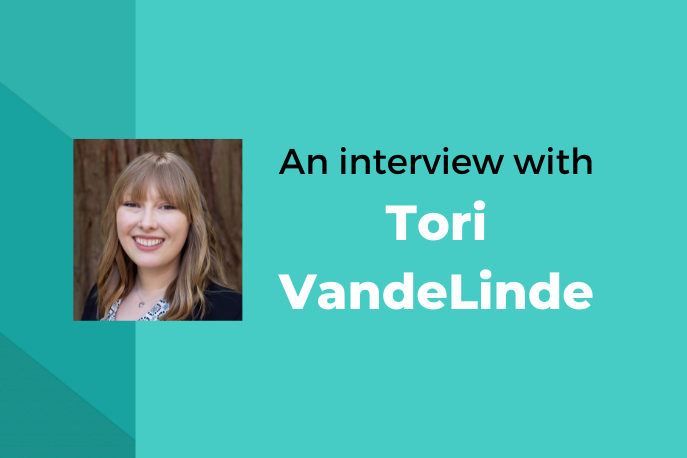Tori VandeLinde’s college years set the foundation for a life of sexual violence prevention work. An ongoing investigation of mishandled sexual violence cases at her university led to a student movement devoted to preventing further sexual violence and changing campus culture. The moment inspired her to seek a career in community health.
That experience both sparked VandeLinde’s interest in prevention work and showed her the importance of institutional culture change – to play her part, she decided to pursue a career in community health, earning a master’s degree in public health and supporting national sexual violence prevention initiatives.
This Sexual Assault Awareness month, we sat down with VandeLinde to discuss her journey to RALIANCE, the connection between sexual violence prevention and public health, and the potential for workplaces to create safer online spaces.
RALIANCE: What led you to RALIANCE, and what’s your favorite part of being a project manager?
VandeLinde: The sexual violence prevention space typically partners with schools or health centers – but RALIANCE expands that scope, working with a wide range of fields. That expansive approach aligned with my own experience working on a national prevention initiative, when I witnessed others partnering with workplaces, entertainment, local chambers of commerce and political spaces. This type of exposure to different fields led me to RALIANCE’s interesting and innovative work. Thus far, my favorite part is being a part of client journeys and experiencing positive progress in real-time. Culture change takes a long time, but seeing organizations build towards safer and more equitable workplaces is impactful and makes me excited to be in this role.
RALIANCE: How does your public health experience help you support the organization’s vision and goals?
VandeLinde: My public health graduate program focused on health promotion and health behavior, both of which closely align with RALIANCE’s work on shifting individual behaviors and social norms to create safer and more equitable cultures. I always return to a quote by two prominent public health scholars: “It is unreasonable to expect that people will change their behavior easily when so many forces in the social, cultural, and physical environment conspire against such change.” This is exactly how we approach behavior change at RALIANCE. I also admire how the public health sector’s health equity approach to sexual misconduct and violence prevention complements workplace DEI initiatives.
RALIANCE: With this year’s Sexual Assault Awareness Month theme being “Building Safe Online Spaces,” how does your work at RALIANCE help support those in the workforce impacted by online harassment, cyberbullying, sexual abuse and exploitation?
VandeLinde: RALIANCE provides tools, like the Sexual Violence and Misconduct Taxonomy, that are behavior specific and therefore applicable to a lot of different situations. This includes online harassment, cyberbullying, sexual abuse and exploitation. With this type of taxonomy, we can better support a variety of settings and capture all the behaviors that leaders need to know about in order to address and prevent online or in-person misconduct.
RALIANCE: We’ve seen several ways in which remote work during the pandemic has exacerbated sexual violence in online workplaces. What piece of advice do you have for corporate leaders who have the power to improve these spaces and enact change?
VandeLinde: Remember that culture isn’t solely about a place, it is about the people, too. There are a lot of things leaders can do to remind people and their networks that, although we may be physically removed from a workplace, we aren’t culturally removed from work. I suggest leaders find creative ways to drive that message home and be responsive to feedback.
RALIANCE provides consulting, assessment, and employee development services to help build more equitable workplace cultures and create environments free from sexual harassment, misconduct and abuse. We stand ready to support your organization’s goals – contact us today at info@raliance.org to get started.

